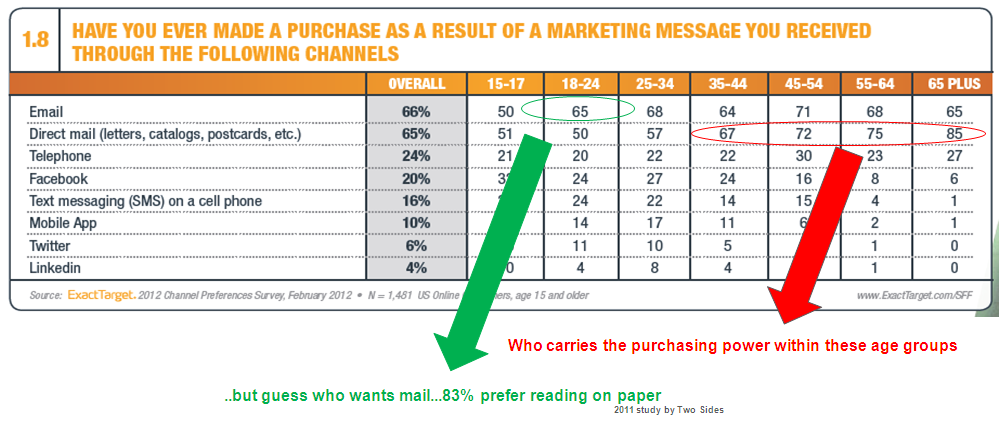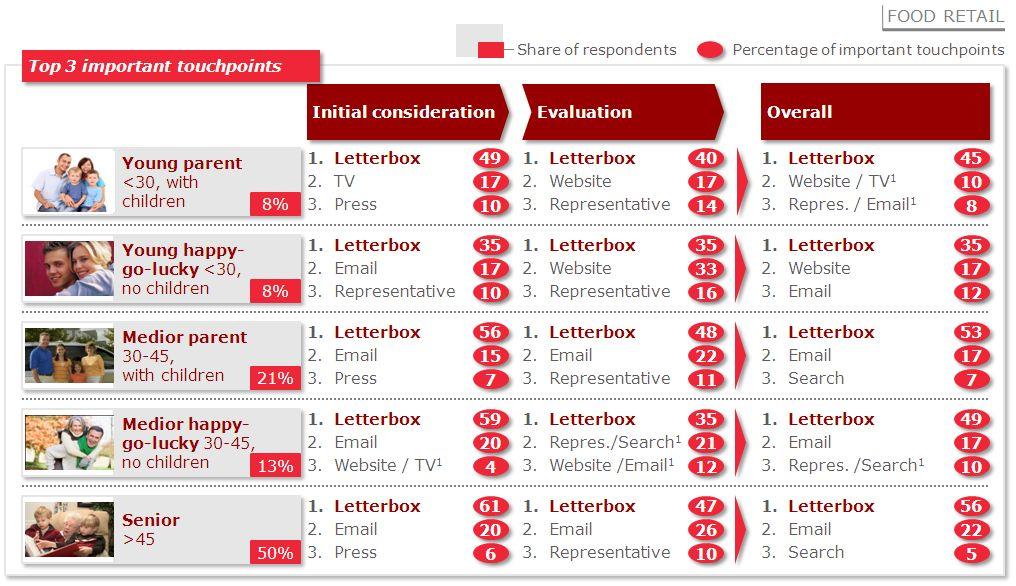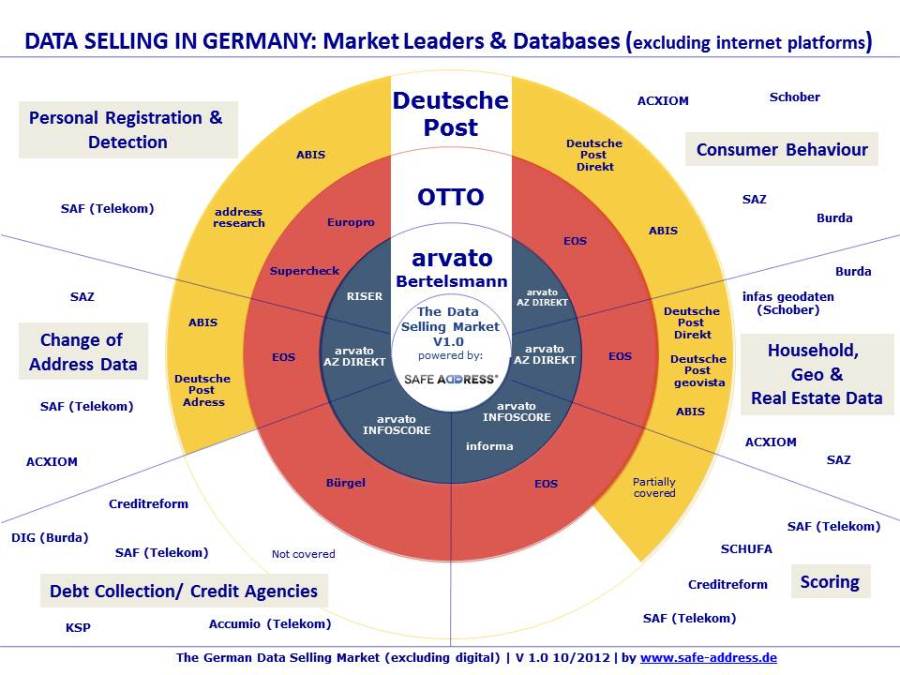- Home ›
- Data Protection ›
- Direct Marketing Mail
Data Protection - Good News for Direct Marketing Mail!
Direct mail marketing is becoming the most effective component in the marketing mix – it is demonstrably – and measurably – more effective than social media and digital communication. New data protection regulations and trust frameworks enable physical direct marketing mail to be more specific, more targeted and use a more profiled message – for an even better return on marketing investment (ROMI).
The ubiquitous availability of data is changing the way we all do business and interact. Customers not only expect to be recognised when frequently accessing a popular website, they also expect to be presented with items which reflect their personal interests, backed up by customized offers.
At the same time they are also increasingly demanding privacy, transparency, and that data should only be used for the purpose for which it is given.
A revolution in the business of Big Data
Many have failed to appreciate the huge scale of today’s secretive and murky data dealing business. And again, many do not yet realise how its business model is about to be revolutionized.
Our next stage of technological development will bring about a fundamental change in the way we handle data.
Because they are subject to strict data protection regulations and operate within trust frameworks, big data tools herald a far more efficient, productive and lucrative way of using data.
Their greatest impact will be to bring unforeseen leaps forward in efficiency, by interlinking data currently not regarded as directly connected to our behaviour, but which allows more accurate predictions to be made using real-time data.
The focus shifts to Identity Management
Having been left relatively untouched for the last 20 years, Europe’s data protection regulations are being overhauled and reengineered to meet the demands of our modern digital society, in which:
- Identity is the central organising principle of modern society
- Identity management stimulates growth and new services
- Interoperability is the key to success
- Regulation is regional (EU) or – ideally – global
- Data protection frameworks are supported by sector-specific data protection
The Universal Postal Union’s own sector-specific data protection regulations for the global postal services network are increasingly replacing general regulations, and cover secured electronic postal delivery services and postal logistics.
Cookies vs. trust frameworks
Tracking customer behaviour using cookies runs contradictory to the new developments in digital identity and electronic identification. Cookies help individual providers re-identify a digital device and user, in order to learn from their patterns of use.
This contrasts with the principle of establishing trust frameworks for Identity Management, operated by trusted third parties.
Identity Management enables entities – such as the posts with their new TLD and secure digital platform .post – to issue identities, attributes and credentials, allowing users to interact within set levels of assurance:
- Interaction between persons/entities and applications becomes accountable
- Trust can be established in accordance with varied levels of assurance
- Data can be exchanged (principle of data efficiency)
- Data not needed for the purpose of the exchange falls outside the principle of purpose limitation and will therefore not be shared (privacy by design / default)
This new principle of establishing trust frameworks is already well documented and numerous standards describe the current state of the art.
General and sector-specific communication logistics regulations and legal requirements are being considered, some have even already been passed.
And the impact on direct marketing mail?
Direct mail used to be:
- purely analogue
- one-directional
- targeted at groups not individuals
Response and success rates were largely unmeasurable. However, the advent of electronic identities and trusted intermediaries will lead to more targeted, more effective and therefore far more efficient direct mail marketing.
And paper is clearly what consumers want……

Fig.1: Effective direct marketing needs to be paper-based. Presentation by Harte & Hanks: Primary Purchase Channels
Targeted direct marketing mail sent within a trust framework makes the communication highly transparent. The sender and the recipient are fully identified, and the impact of the communication on the action of the recipient can be measured.
Trust frameworks enable interactive communication:
- The communication does not stop when a particular message has been sent or received
- Purchases made as a direct result of a marketing message (barcodes / vouchers / coupon references, etc.) can be measured – or a lack of response re-evaluated
- Direct mail becomes just one part in a communication cycle, bridging the digital divide
This brings a whole new meaning to Return on Marketing Investment (ROMI). The more data that is available, the more people and entities share and interact, the more investment and its return can be made visible.
Good news for the posts
Looking at the results from countries in the EU and North America, it is interesting to see that physical mail and the letterbox-moment offer a leading ROMI compared with other marketing channels:

Fig. 2: bpost presentation March 2014: "Evolve or Perish, Digital Darwinism for Belgian Companies", November 2012; Team analysis
But it doesn’t stop there.
The use of mobile devices is changing our behaviour towards printing.
Today we are no longer printing static content. This ‘new mobile printing’ is linked to dynamic content, in which the current printout is only a reflection of the current status of a ‘dynamic’ document. The original document as such stays digital.
In turn, the physical/static media which is used to add content can be switched back to digital and include the added content in it digital format. (Samsung – the ‘Document of Tomorrow’)
The ‘Document of Tomorrow’ highlights the path direct mail is travelling.
Far from being old-fashioned and irrelevant to our digital world, the physical direct marketing mail piece remains an integral part of the marketing mix and takes on a new role in bridging the digital/physical divide.
The “Direct Mail of Tomorrow” is highly valued by consumers as a source of information targeted at specific needs, and contributes to predicting the likely interests of the recipient.
Walter Trezek is the Chairman of the Consultative Committee (CC) of the Universal Postal Union (UPU).
- Home ›
- Data Protection ›
- Direct Marketing Mail
Does this article cover a topic relevant to your business? Access the CLS Business Lounge for the market intelligence you need to stay ahead of the crowd. Find out more






